Meet the Members of Impact Hub Berlin
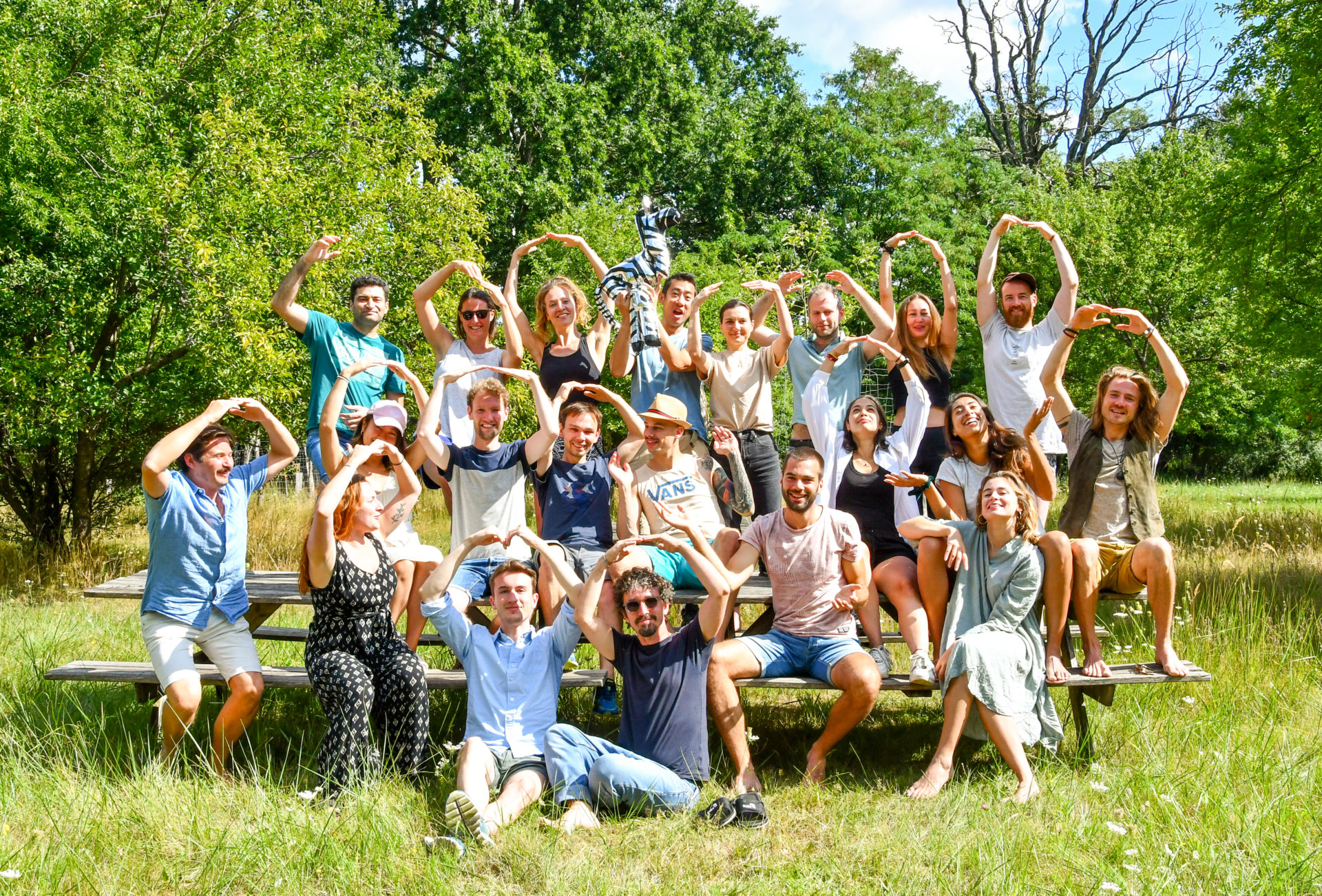
Over the last eight years, Impact Hub Berlin has proudly become the place-to-be for Berlin’s most exciting and innovative impact-driven entrepreneurs.
Since 2014, Impact Hub Berlin has been providing support to local changemakers as they create a positive impact on our society and environment. Out of our brand new sustainable coworking space in Neukölln, Impact Hub Berlin members are hard at work developing new technologies, inspiring new ways of thinking and creating important connections with the other impact-focused ventures in our global network.
Through our four ecosystems, the Impact Hub Berlin coworking space is able to support entrepreneurs in their specific goals. These ecosystems are Circular Economy, Sustainable Food, Diversity & Inclusion and Green Tech. Each plays host to a carefully crafted set of activities focused on enabling collaboration between impact-driven ventures and supporting innovation partnerships.
Meet the Members: Social Impact meets Berlin Coworking
Over the years Impact Hub Berlin has provided support, community, connection and more to ventures dedicated to making the world a greener and more inclusive space. Let’s meet some of our valued Impact Hub Berlin members across our ecosystems!
Tina Rose & Klara Yoon, Co-founders of We Are Galaktika
Ecosystem: Circular Economy
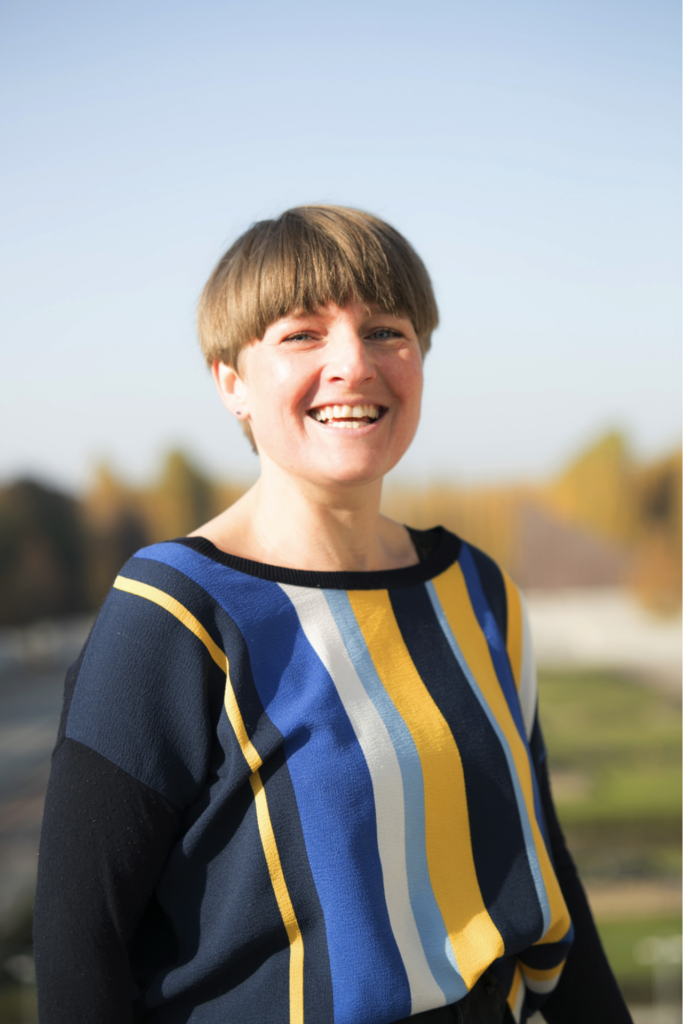
We Are Galaktika began life as a zero waste menstrual cup, until founders Tina Rose and Klara Yoon realised the impact silicon creation has on the environment. As a result, the company pivoted from their circular menstrual cup to researching zero waste circular solutions for the lifecycle of all silicone products.
Producing a silicone item comes with a high carbon footprint. Silicone is made out of sand, and mining the sand and converting it into silicone destroys biomass and is highly energy intensive. Furthermore, because silicone is so durable the only way to get rid of it again is to burn it at high temperatures. We Are Galatika’s vision is to transform the linear silicone industry into a circular one – one with no mining, less landfill pollution and less consumption.
The goal is to recycle silicone using an innovative chemical technology, and then return the recycled silicone back to the companies’ production cycle – endlessly reproducing the material in circularity, and always at the same high quality as the original virgin material.
We Are Galaktika were part of the 2022 Circular Together Program, held at the new Impact Hub Berlin coworking space in Neukölln. “Impact Hub Berlin enabled us to pivot our business idea and therefore create more impact,” Tina says. “It provides us with a lot of freedom and an inspiring place to develop We Are Galaktika through fantastic coaching and mentoring, inspiring content through Master Classes, and several opportunities to pitch and challenge our business idea.”
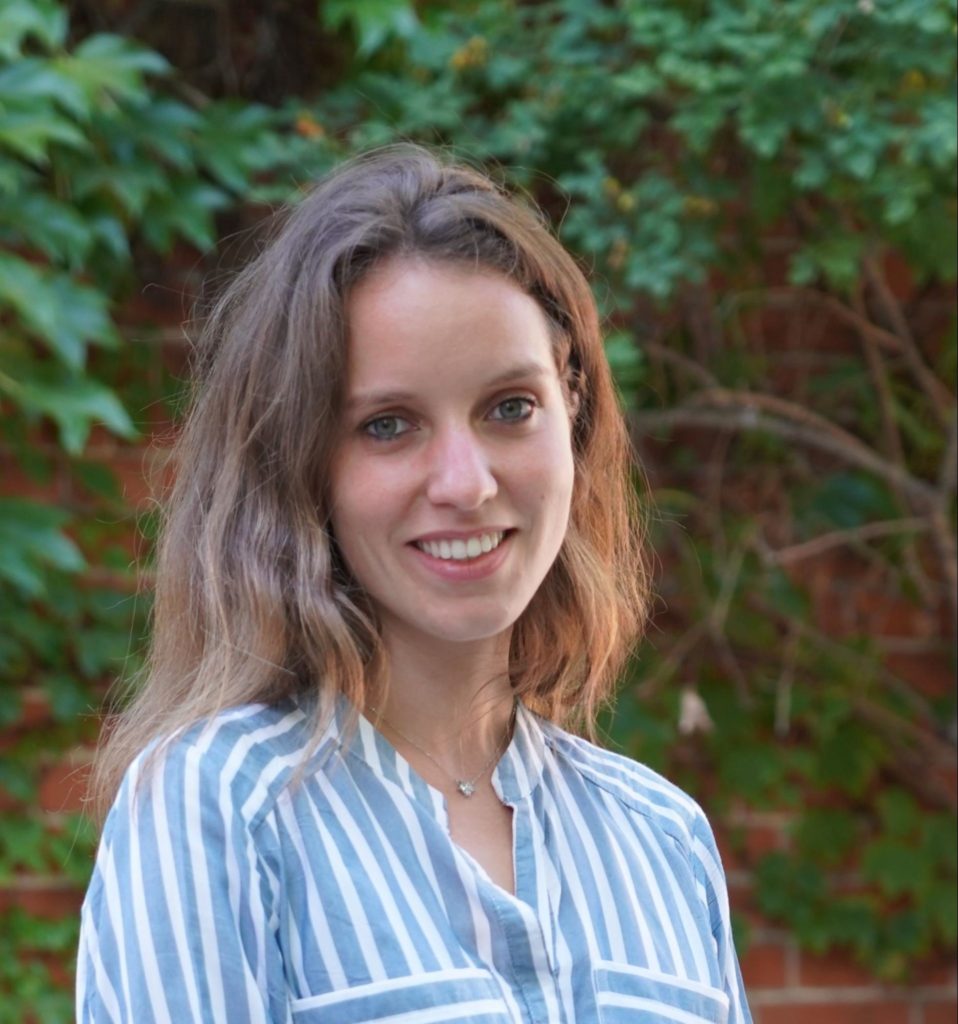
Jasmin Mir, Founder of aMStart
Ecosystem: Diversity & Inclusion
Founded by Impact Hub Berlin member Jasmin Mir, aMStart is a digital onboarding platform for young adults who are about to face a new challenging life situation – a diagnosis with a chronic disease.
The venture was born out of Jasmin’s own personal experiences with chronic illness. “I realised there are so many questions, emotions and thoughts present which were very overwhelming,” Says Jasmin. “What I realised is that many young adults are experiencing this gap. They lack a space where their demands are met after their diagnosis.”
At the heart of aMStart is a one-to-one exchange between newly diagnosed young adults living with a chronic disease. This offers a space where the community can hold space, listen and share their experiences. Currently aMStart is connecting young adults who have been diagnosed with Multiple Sclerosis.
For the last two years Jasmin has been working with the Impact Hub at their Berlin coworking space to take aMStart forward, inspired by the positive feedback she’d received from the young MS community. “It has been great to have access to such a great network of people who are all sharing the vision of turning the world into a better place,” she says, “as cliché as it sounds, it’s inspiring to be working in this atmosphere. I’ve had conversations many times now which has led me to benefit from all the knowledge that is present.”
Jasmin has gathered funding for aMStart’s first pilot year, which has allowed the start-up to hire four new people and grow the project further.
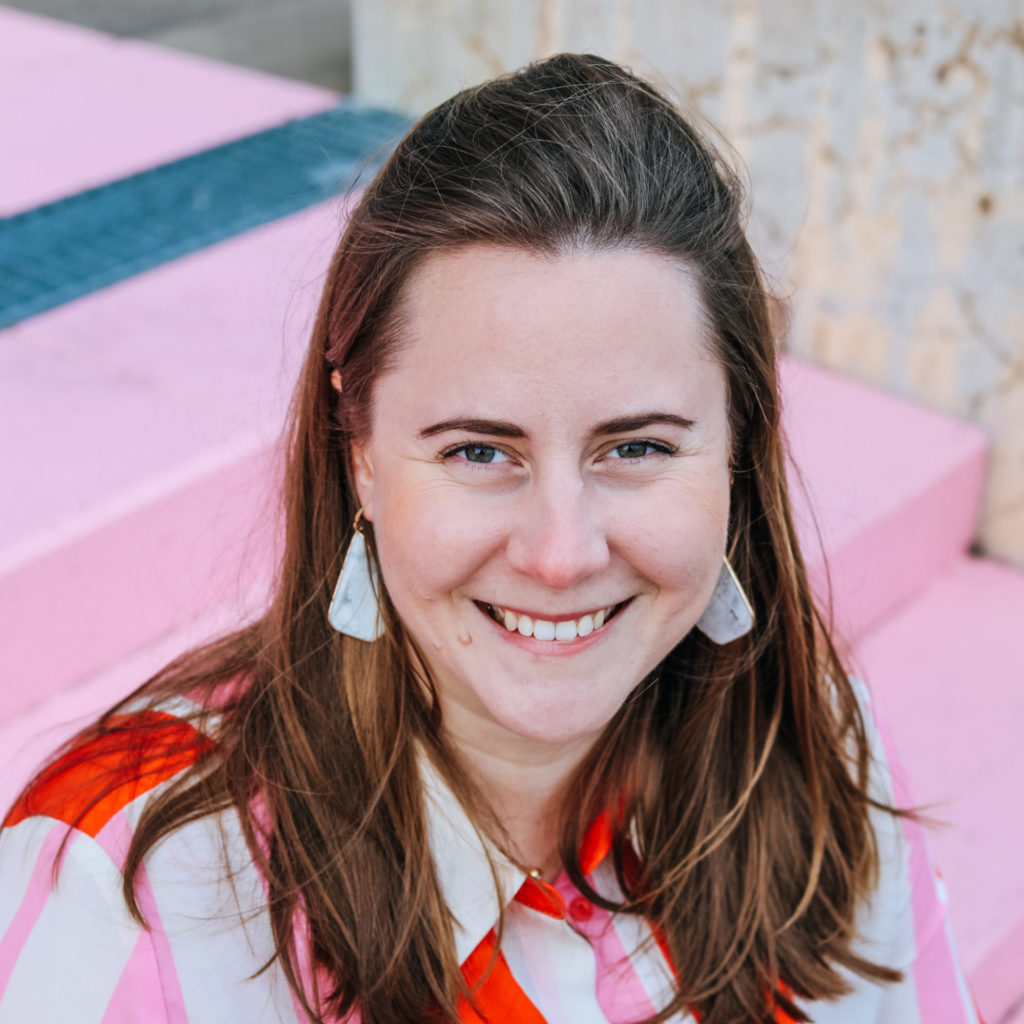
Sabrina Konzok, Co-Founder of Kiron Digital
Ecosystem: Diversity & Inclusion
Kiron Digital is working to become the backbone of a new education ecosystem – one which bridges the gap between refugees and education by creating a safe virtual space for underserved community members to learn. It is a social enterprise whose SaaS LXP enables organisations around the world to create, deliver and retain better collective learning experiences. “There is nothing like seeing the first learners enter the learning platform we have set up for one of our clients,” says co-founder Sabrina Konzok. “We truly believe in the power of digitised education as it enables organisations to scale their impact.”
Kiron Digital was founded in 2020 as a social enterprise and part of the revenue to fund the online learning platform Kiron – an NGO and virtual home for learning, personal growth and collective impact. Through on-going customer satisfaction surveys, the number of learners and levels of engagement, the Kiron Digital team plans to further improve their technology.
Through work at the Impact Hub Berlin coworking space, Sabrina and Kiron Digital launched #WirvsVirus – the world’s biggest digital hackathon – and are shaping the future of social innovation through the Social Innovation Capital Berlin project. “Impact Hub is the place where changemakers meet.”

Ivana Perbi-Ohlheiser (Founder) and Marc Stegner (COO), Wardrobe Affaire
Ecosystem: Circular Economy
Founded in 2021 to tackle the global issue of fast fashion, Wardrobe Affaire is a clothing rental start-up which strives to make popular brands available for everybody. The venture wants to inspire fashion-forward, socially-conscious individuals by providing access to clothes on a rental basis, rather than buying brand new.
The project started as a charity, where founders Ivana Perbi-Ohlheiser and Marc Stegner rented clothes from influencers and collected funds for the OR Foundation – a non-profit in the field of fashion waste colonisation in Ghana.
Part of the way Wardrobe Affaire plans to measure their impact is through data collection. “We would like to erase the efficiency of fashion items,” says Marc.“We will calculate the days of usage per month so we end up with the efficiency for each item; such as how many days it has been used in a month. This data can be used to measure environmental impact.”
As well as their dedication to the circular economy, Wardrobe Affaire wants to create a brand which encourages their customers to experiment with fashion. “It makes me proud when people have feedback saying they had a great experience wearing an item that doesn’t belong to them. That they felt great in it and would have never normally bought it – especially considering the quality we want to provide through our brand partnership, and the pieces we have on our platform – I think this is something that continually makes us proud.”
Through their work at Impact Hub Berlin, the venture has been able to attend events, meet the community and build connections – especially within the circular economy. “The Circular Together programme was super helpful with the business side, showing us how you approach and change things,” says Ivana. “Having great contacts with like-minded people makes Circularity a great ecosystem to be a part of.”

Oliver Gould, Senior Research and Development Specialist at Made of Air
Ecosystem: Green Tech
Construction materials are some of the worst emitting materials on the planet. They do a huge amount of environmental damage each year – both in terms of their CO2 emissions and their reuse and end of life. Made of Air provides an alternative.
“On the simplest level, we're looking to abate and reduce climate change,” says R&D specialist Oliver Gould. “Ideally we're hoping to take CO2 out of the atmosphere and put it back into the ground.”
The idea was the brainchild of two architects – Allison Dring and Daniel Schwaag – who spent much of their career working with construction materials. They both felt that there was a massive lack of environmentally-friendly building materials and set out to provide an alternative. The goal is to provide something better, something good for the environment and something that solves problems with material supply chains – improving the environment and creating a circular construction industry.
At Impact Hub Berlin, Made of Air now has a space where we can develop cutting edge materials, conduct research and let wonderful, creative people come together to put science on the front line of the circular economy.

Marielle de Geest, Senior UX Designer at Cogo
Ecosystem: Green Tech
Cogo began in 2010 as an app called Conscious Consumers, which matched consumers with businesses based on ethical values such as the climate, animal rights, cost-of-living, etc. However, once open-banking entered the scene their focus shifted.
Through partnerships with some of the world's largest banks, Cogo aims to integrate leading carbon-tracking functionality into these bank’s apps via open-banking technology. Their carbon footprint management tool helps individuals and businesses to measure, reduce and offset their impact on the climate.
Impact Hub Berlin member and Cogo UX Designer Marielle de Geest works remotely as part of a multidisciplinary team of behavioural science researchers, product designers, and data scientists to make this possible.
From our Berlin coworking space, Marielle is able to explore how to enable everyday people to better understand and take action on their impact.
Cogo is gearing up to launch a brand new product for small businesses in September. “All the research, design, testing, and collaboration between all of our teams has gone into this, so it will be beyond amazing to see it in front of users!”
“As our team expands and takes on more remote employees like myself, it’s great to have a space in Berlin away from home to connect with like-minded people,” says Marielle. “It’s especially inspiring to see other Hubbers putting in work towards the same goals in the Green Tech ecosystem!”
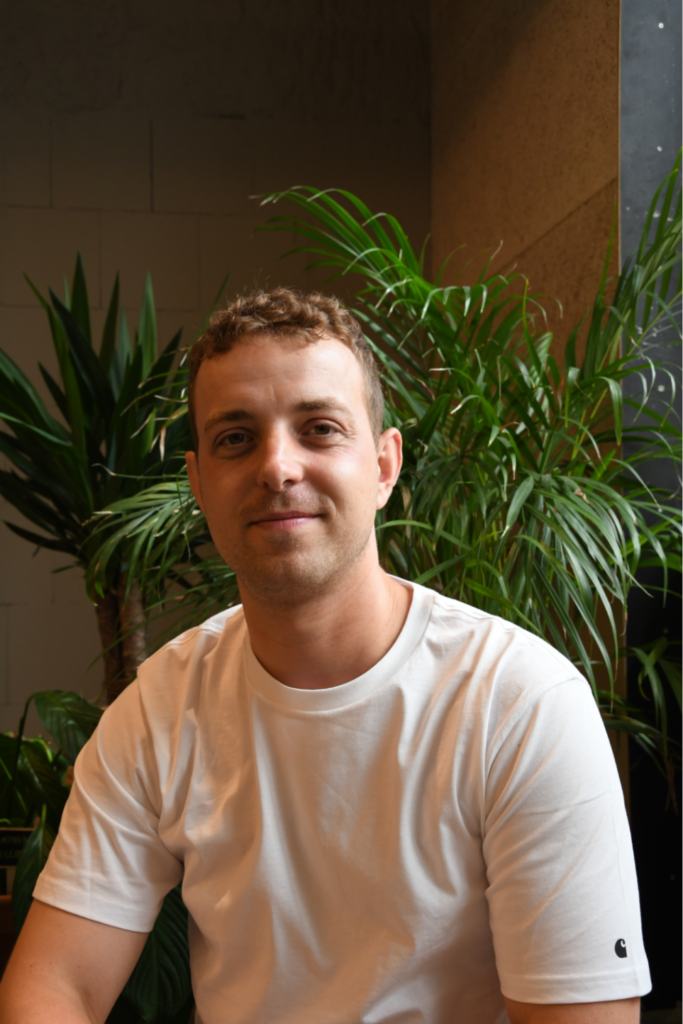
Steffen Thomas, Founder of Material Guide
Ecosystem: Sustainable Food
Steffen Thomas has always been interested in food – where our food comes from, how it is processed, who is eating it – which is why he is developing Material Guide, a company that provides radical transparency as a service by documenting food production chains from farm to fork.
Using our Berlin coworking space as his base, Steffen and Material Guide are seeking to provide a foundation to accurately measure the impact of food production and consumption on our society and environment. While transparency is not directly measurable, the corresponding data collected over time should hopefully enable impact assessments. This will contribute to a more sustainable future for the industry.
Material Guide is part of the Feeding the City programme at Impact Hub Berlin – an incubator that supports early-stage founder teams in Germany develop their sustainable food solutions and to test and launch their businesses.
“To my mind, Impact Hub Berlin is a good excellerator and facilitator for networking, gaining connections to investors and all kinds of stakeholders in the food value chain that could be important to Material Guide,” says Steffen. “It is also great to get feedback from the people or crowds working in sustainable food already. Accessible networking is provided for everyone.”
Would you like to join our community of impact-driven, dedicated members? Do you want to make a difference and help us create a better future?
Apply here to become an Impact Hub Berlin member.
What about partnering with us to accelerate your impact goals and support our mission? Click here to learn more.
Alternatively, click here to join our investor’s community and help support the impact startups changing the world!
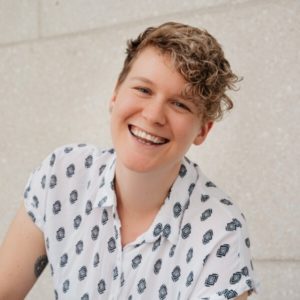
Content Writer
